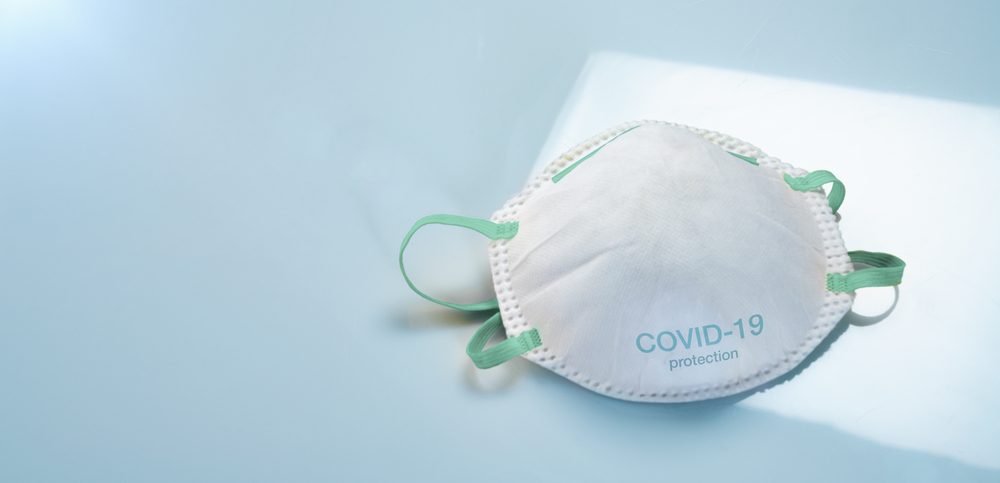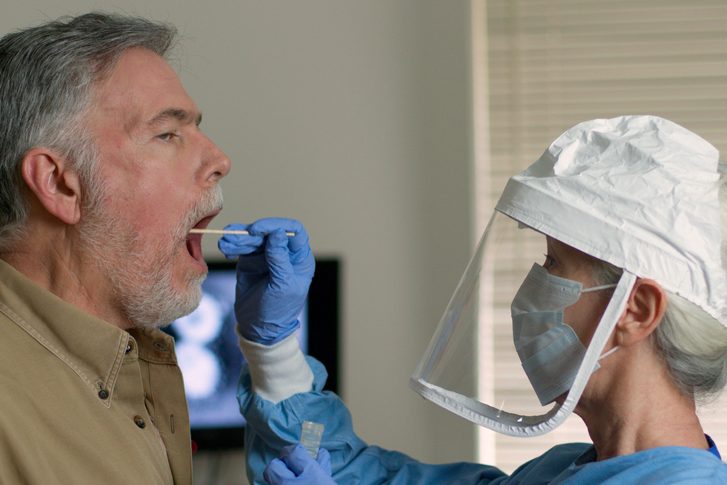
Digging Dipper: Myths and Speculations About Coronavirus

The novel coronavirus, now known as COVID-19, takes the limelight in global news. As the fast-spreading virus takes centerstage, numerous rumors and speculations circulate about the said “pandemic.”
The COVID-19 that originated in Wuhan, China have rapidly spread to all the continents except Antarctica and has taken the lives of 4607 individuals with 124,518 confirmed cases in 118 countries and territories.
The masses have become fearful upon learning the alarming statistics of the effects of the virus with all the panic and fear, false and untrue myths have sprung, causing hysteria around the globe. Now, let’s dig dipper into some of the most common myths circulating on social media.

Ranjat K Mishra/Shutterstock
The COVID-19 has spread across multiple countries in the world.
Spraying chlorine on skin kills the virus
It is true that the virus cannot survive in a chlorinated swimming pool. However, people should not apply chlorine directly on the skin as it is harmful especially if it enters the eyes or when ingested. Although, you may use it to clean and disinfect floors and surfaces, its chemical properties cannot kill the virus within the body.
Only the elderly and children are prone to the virus
The COVID-19 can infect any individual regardless of age. All age groups can be infected. However, older adults or anyone with pre-existing health conditions, are more at risk and have a higher probability of contracting the virus.
Coronavirus is similar to flu
The virus has been observed to display flu-like symptoms such as cough, headache, and fever. The flu can be mild, severe, or in rare cases, fatal when it develops to pneumonia. Moreover, COVID-19 is proven to be more serious with a mortality rate between 1 percent to 3 percent compared to the seasonal flu which generally kills less than 1 percent of those infected.
People infected with the virus will die
As mentioned, the mortality rate ranges from 1 to 3 percent of the total number of cases. The Chinese Center for Disease Control and Prevention has reported that 80.9 percent of all the confirmed cases were mild. Not everyone who has contracted the virus dies.
You have to be in close proximity with someone for 10 minutes to contract the virus
It is very possible for you to catch the virus in less than 10 minutes. You do not even have to be in close proximity to an infected person. One can contract the virus by touching the eyes, nose, or mouth after touching a surface that has droplets from an infected person.

JHDT Productions/Shutterstock
Transmission can be very fast for the COVID-19.
Hand dryers eliminate coronavirus
Although the coronavirus dies in high temperatures, the heat generated from the hand dryers does not kill the virus. However, constant proper handwashing with soap and water is the best way to protect yourself from being infected.
Cats and dogs are carriers of the virus
There are no strong pieces of evidence that suggest that dogs, cats, and other animals can be infected by the COVID-19, according to historical data, most global outbreaks have been fueled by human-to-human transmission. Scientists doubt that dogs and cats can potentially spread the virus to humans as the real drivers of outbreaks are humans.
Rinsing your nose with saline can safeguard you from coronavirus
There has been no proof that a saline nasal rinse can help you from having respiratory infections. One research advised that doing this can lower the symptoms of acute upper respiratory tract infections, but scientists have not confirmed that it can lower the infection risks.
Gargling bleach can help
News about gargling bleach to protect you from coronavirus have been circulating, which proves that you really need to do your research before trying out health advice. Bleach can cause serious damage as it is corrosive.
Antibiotics can kill coronavirus
According to The World Health Organization, antibiotics must not be used to prevent or treat coronavirus. Using it is plain useless since antibiotics are only capable of killing bacteria.

Iryna Kaliukina/Shutterstock
The World Health Organization advises against using antibiotics to treat coronavirus.
Coronavirus can be diagnosed using thermal scanners
Thermal scanners can only measure body temperature, which can help detect if someone has a fever. However, there are many other circumstances that produce fever such as seasonal flu.
Also, coronavirus symptoms can only show 2 to 20 days after one gets infected, so if someone has coronavirus, they can have a normal temperature days before they have a fever.
Parcels coming from China can spread the virus
Scientists believe that coronavirus cannot linger on packages or letters for a long period of time. This is due to coronavirus’s inability to survive on surfaces, making it a lower risk especially that these items are shipped over a period of days or weeks, explained CDC.
You can be infected with coronavirus from urine and feces
This is not true. Professor John Edmunds of the London School of Hygiene and Tropical Medicine in the U.K. said that when you swallow, mucus from your respiratory tract can help in sweeping the viruses and bacteria to your gut. The acid in your stomach will then be denatured.
Coronavirus originated in a laboratory in China
This rumor has been spreading over the internet, but there has been no evidence to back up this case. Some researchers say that the coronavirus may have sprung from pangolins to humans. Others also believe that just like SARS, the virus may have come from the bats.
The outbreak started because people ate bat soup
Plenty of online memes have been targeting the eating habits of Chinese, accusing their eating of bat soup to be the main reason for the outbreak. Scientists said that the virus started in animals, but no evidence has proved that coronavirus came from any kind of soup.
More in Health & Well-being
-
`
Here’s Everything You Need to Know About Open Relationships
An open relationship is a consensual arrangement where partners agree to engage in romantic or sexual relationships with other people. Unlike...
June 6, 2024 -
`
Explore the Multifaceted Goals of Meditation
What is the goal of meditation? If you have ever found yourself asking this question, you are not alone. Meditation has...
May 31, 2024 -
`
When is National I Love You Day Celebrated? Mark Your Calendar
Life can get hectic, and sometimes amidst the daily grind, we forget to express our love and appreciation for the phenomenal...
May 23, 2024 -
`
When’s the Best Time of Day to Fish?
For any angler, a successful fishing trip hinges on several factors. But one of the most crucial elements is timing. Knowing...
May 14, 2024 -
`
What Mental Illness Does Britney Spears Have? Discovering the Answer
Britney Spears, a name that resonates with millions around the globe, goes far beyond the glitz and glamour of her stardom....
May 7, 2024 -
`
Here Are Some Easy Ways To Say No To Unrealistic Expectations In Your Relationship
If you are in a relationship, you should constantly work on improving it. Some early lovebirds fall in love too quickly...
May 3, 2024 -
`
Therapy? Medication? What Are the Treatments for PTSD
Post-Traumatic Stress Disorder (PTSD) is a common after-effect of traumatic events. It can be a debilitating condition, but the good news...
April 25, 2024 -
`
Courting vs Dating – Which Relationship Path is Right for You?
In today’s fast-paced world, the terms ‘courting’ and ‘dating’ often swirl around in conversations about relationships. While some people may use...
April 23, 2024 -
`
Essential Mexico Travel Tips for a Seamless Adventure
Mexico, a land of vibrant culture, breathtaking landscapes, and mouthwatering cuisine, beckons travelers from across the globe. But before you embark...
April 16, 2024















You must be logged in to post a comment Login